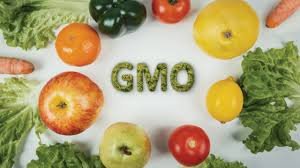The National Agency for Food and Drug Administration and Control (NAFDAC) has reassured Nigerians that genetically modified organisms (GMOs) in food are safe for consumption, provided they undergo proper safety evaluations and carry clear labels.
NAFDAC Director-General, Prof. Mojisola Adeyeye, gave the assurance on Thursday while speaking on Sunrise Daily, a Channels Television breakfast programme.
She said there is widespread misconception about GMOs, which fuels unnecessary public fear, and stressed that NAFDAC works closely with the National Biosafety Management Agency (NBMA) to ensure that all genetically modified food items are adequately tested before being allowed into the Nigerian market.
“GMOs are not bad for us, depending on what type of foods they are and whether safety considerations have been taken,” Adeyeye stated.
The NAFDAC boss, a professor of pharmaceutics, advised Nigerians to always check product labels before purchase.
“I’m a food freak. I want to know that what I’m eating will give me a good health outcome,” she said.
“I look at the label. I want to be sure NAFDAC’s label is on it… and if it’s genetically modified, it should be clearly written.”
According to her, labelling gives consumers the power to make informed choices, including the option to distinguish between organic and non-organic foods.
She explained that while NAFDAC approves food items for public consumption, the NBMA’s certification is a prerequisite.
“We cannot approve GMO foods without NBMA’s certification,” she said. “Without them certifying that they have done their due diligence… we cannot proceed.”
Adeyeye also noted that other regulatory bodies at state level have roles in monitoring food safety in local markets, but NAFDAC’s primary mandate remains quality control, safety verification and certification of food and drugs.
Her comments come amid heightened public concern about food safety standards in Nigeria, especially regarding genetically altered products.
Last month, the National Biotechnology Research and Development Agency (NBRDA) also moved to ease fears, with its Director-General, Prof. Abdullahi Mustapha, describing biotechnology as key to solving Nigeria’s food insecurity.
“False claims about GMOs have contributed to public scepticism and slowed down the adoption of technologies that can transform lives,” the NBRDA said at a sensitisation workshop for the House of Representatives Press Corps in Abuja.
Adeyeye concluded that the health of Nigerians remains paramount to the agency.
“Our role is to ensure that every item approved for consumption is safe, of high quality, and contributes to the well-being of the people,” she said.










